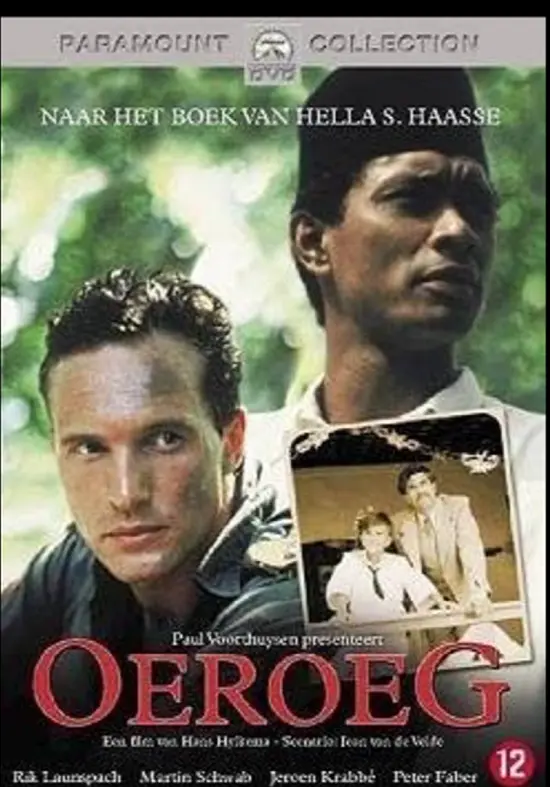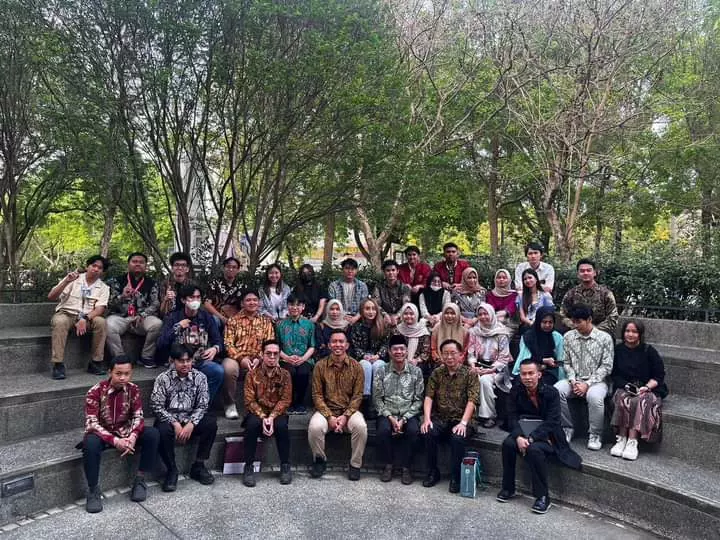Berita ini telah tayang pertama kali di JurnalPost dengan judul Oeroeg (Going Home): Power Relations in Colonialism in Indonesia

oleh Roma Kyo Kae Saniro
dosen Universitas Andalas
JurnalPost.com – “Oeroeg” delves deeply into the intricate dynamics of power relations within the context of Dutch colonialism in Indonesia, illustrating how power influences every aspect of life and interaction between Dutch colonizers and native inhabitants. Through the complex storyline and compelling characters, the film vividly portrays the impact of power dynamics on various facets of daily life, encompassing social, political, and economic interactions.
Initially, the film focuses on the friendship between a Dutch boy named Johan and an indigenous Indonesian boy named Oeroeg. However, their friendship is shattered by politics and war, mainly due to the brutal killing of Johan’s father by Indonesian fighters, one of whom is Oeroeg. Johan ten Berghe, a Dutch soldier born and raised in the Dutch East Indies, continued his education in the Netherlands before joining the military and being sent back to Indonesia during the Dutch Military Aggression. Along the way, he seeks information about his father’s whereabouts, as his father, Hendrik ten Berghe, a Dutch East Indies official and plantation owner in Kebonjati, was reportedly held captive by Japanese soldiers.
As Indonesia declares independence, Johan reminisces about his childhood in the Dutch East Indies with his friend Twan. They reflect on Johan’s friendship with Oeroeg, a childhood friend from a native family. Despite differences in social status, Johan and Oeroeg share a close bond. Oeroeg, the son of Johan’s father’s servant, is nurtured with love by their teacher, Lida. Johan and Oeroeg symbolically share their blood on a betel leaf and exchange it as a sign of friendship.
However, as time passes, Johan, who had left Indonesia, eventually returns as a soldier. Upon learning of his father’s death in the Indonesian War of Independence, he briefly reunites with Oeroeg, who has joined the Indonesian National Army (TNI). They reminisce about their childhood and how Oeroeg received a higher education thanks to their friendship and Lida’s care.
The film depicts Johan’s search for Oeroeg as he approaches Oeroeg’s family for information on his whereabouts to reunite with his childhood friend. However, the trauma of Oeroeg’s father’s death and the post-independence political atmosphere in Indonesia make Oeroeg seemingly unsympathetic towards the Dutch at the time, contrary to his attitude towards Johan when they were children. The story culminates in the reunion of Johan and Oeroeg on a bridge, where a prisoner exchange between the Indonesian National Army and the Dutch Royal Army occurs.
Before delving into power relations, let’s first discuss what power relations entail. According to Michel Foucault, power is a dimension of relations; wherever there are relations, there is power. Thus, power practices, in this sense, are more about individuals in the smallest scope, as power extends without localization and infiltrates into all social networks.
This is because power has the nature of normalizing societal structures and operations, not being possessed by anyone, particularly in science, individuals, or institutions. Additionally, power is formed from the consciousness of society, with power from within determining the scale of societal arrangements, rules, and relationships. According to Foucault, knowledge always breeds power, formed from knowledge, with expertise always having power effects. In plain terms, the film demonstrates the power closely intertwined with the normalization of colonial society with the natives.
The film “Oeroeg” intricately depicts power dynamics in Dutch colonialism in Indonesia, explaining how power permeates various aspects of daily life, including social, political, and economic interactions between Dutch colonizers and native inhabitants. In the Dutch-Native relationships depicted in the film, differences in power distribution are emphasized, with the Dutch, exemplified by Johan and his father, wielding power over resources and authority. In contrast, the natives, such as Oeroeg and his father, often find themselves subjugated and exploited. These power dynamics are evidenced through differing treatment, rights, and opportunities for wealth.
Furthermore, the film portrays how the power structure established by the Dutch colonial regime affects the political and social landscape in the Dutch East Indies. Political and economic power is monopolized by the Dutch, relegating the natives to marginalized and subordinate positions. Moreover, the film underscores how these power dynamics influence the formulation of norms and social structures. Existing norms tend to favor the Dutch, perpetuating the oppression and colonization of the natives.
“Oeroeg” not only highlights the differences in social and economic positions between colonizers and natives but also carefully explains how power relations function within the context of colonialism, penetrating all aspects of life in the Dutch East Indies. The power relations established by the Dutch colonial government showcase the power relationships.
Furthermore, the film portrays how social segregation and racial discrimination are ingrained in the daily existence of the Dutch East Indies. Despite the deep friendship between Johan and Oeroeg, differences in social status and race act as barriers in their relationship, as evidenced by their respective fathers’ disapproval of their friendship. Not only due to the disapproval of their parents but also the death of a native who Johan considers to be an accident, Sati reveals that “Johan’s memories are different from theirs.” This indicates that Sati remembers memories as a native towards Johan as a colonial image in his time.
On a political level, the conflict between the Dutch and Indonesia, which are struggling for independence, sheds light on the various power struggles. War serves as a means to establish Dutch supremacy, while for the natives, resistance symbolizes efforts to assert sovereignty and free themselves from colonial conquest.
Additionally, in the personal bond between Johan and Oeroeg, the film illustrates how power dynamics can erode friendship and trigger conflicts. The poignant example of Johan’s father facing his death at the hands of Indonesian fighters, including Oeroeg, vividly illustrates how power dynamics and political conflicts can affect personal relationships. However, ultimately, this narrative depicts a life of peace with the exchange of soldiers between Indonesia and the Netherlands, marked by the reunion of Oeroeg and Johan on a bridge.
Therefore, through the complex storyline and compelling characters, “Oeroeg” reveals the central role of power relations in Dutch colonialism in Indonesia, influencing all aspects of life and interaction between Dutch colonizers and native inhabitants. However, ultimately, the film portrays that the past can be rectified through the representation of exchange between the two soldiers. The reunion of Johan and Oeroeg on the bridge amidst a prisoner exchange during wartime depicts hope for reconciliation and peace between two contrasting cultures. The expression “Far close still brothers” reaffirms that despite past differences and conflicts, there is potential to unite both cultures and create a more harmonious relationship in the future. Thus, “Oeroeg” provides a complex view of the role of power relations in Dutch colonialism in Indonesia while also portraying the potential for reconciliation and unity between two conflicting cultures.
The post Oeroeg (Going Home): Power Relations in Colonialism in Indonesia appeared first on JurnalPost.
